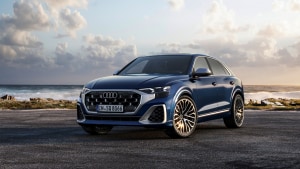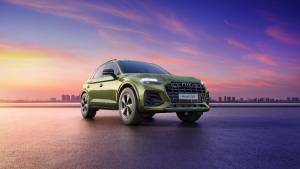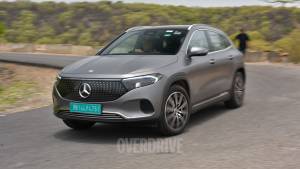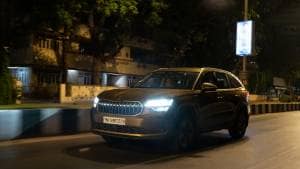All-new Volvo XC90 revealed
It's no secret that Volvo is in the midst of updating its entire lineup to pure EVs but that's not until 2030 so before they let go of their combustion engines, the Swedish marquee is giving its popular SUV, the XC90 one last hurrah. The EX90 currently sold alongside the XC90 will completely take over the big SUV space from Volvo but till then, let's see what this 'possibly' last XC90 has to offer.
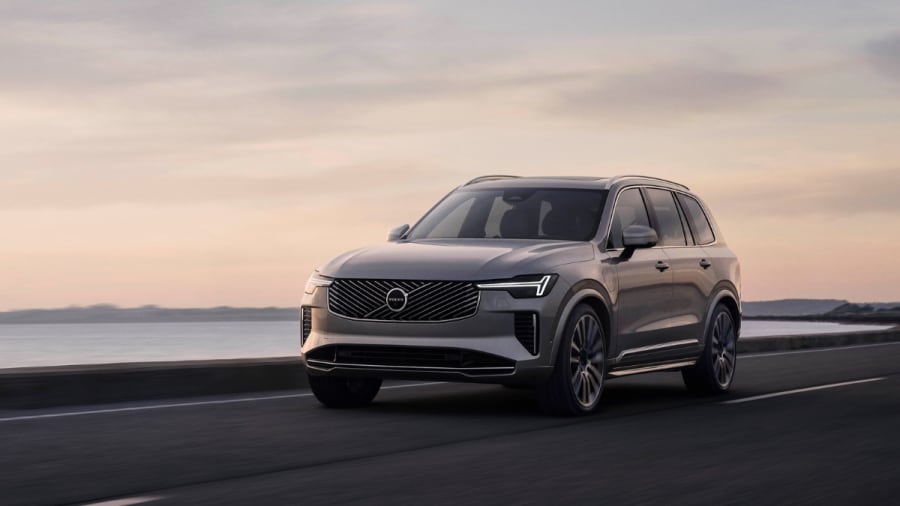
New Volvo XC90: Exterior
The exterior and interior have been significantly updated, and the chassis has also been improved. The platform is an improved version of Volvo's SPA architecture, which made its debut in the current XC90 ten years ago. The carmaker claims that the new integrated link rear suspension configuration improves traction and towing stability.
A new grille design and slightly modified headlights with a reworked LED daytime running light signature are the highlights of the modest makeover. Vertical air vents have also been added to the front bumper, and the lower air intake protrudes farther than previously. Volvo modified the light pattern at the back while keeping the recognizable design of the taillights.
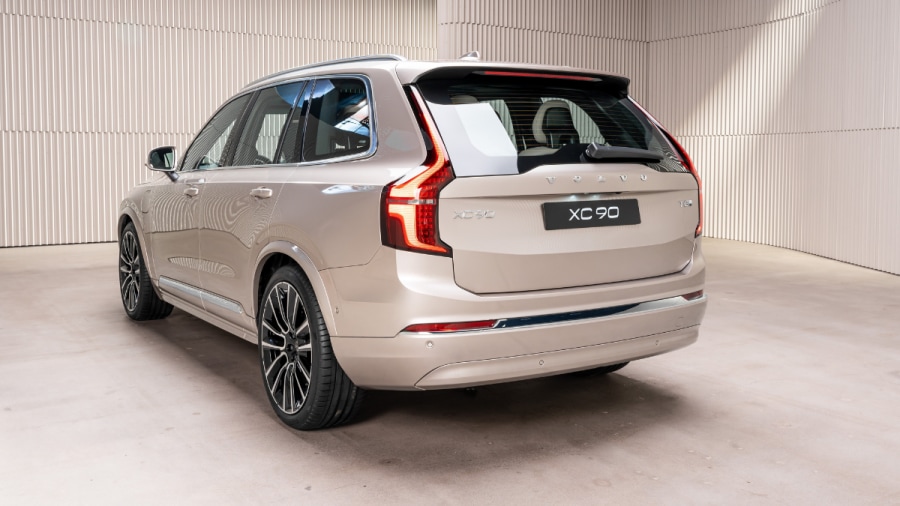
New Volvo XC90: Interior
However, the inside has a completely reworked dashboard with more textured surfaces, revised air vents, and an 11.2-inch free-standing centre touchscreen that, according to Volvo, is crisper and more sensitive than the previous 9-inch model. In addition to supporting over-the-air software upgrades and Apple CarPlay, the system has Google integrated in.
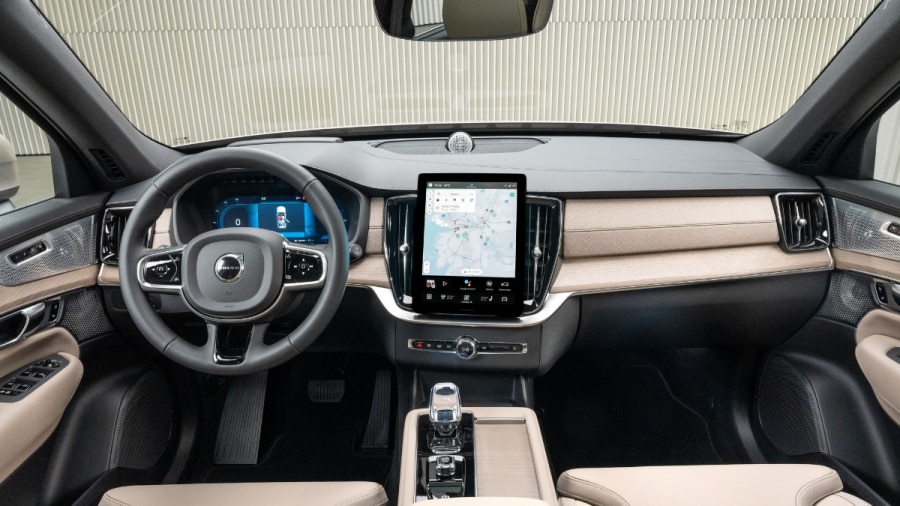
A split-screen 360-degree camera system and improved ambient lighting are two further technological improvements; the 12-inch completely digital driver's display remains unchanged. The new XC90 places a lot of emphasis on using materials that are obtained responsibly, and it also has a more functional interior.
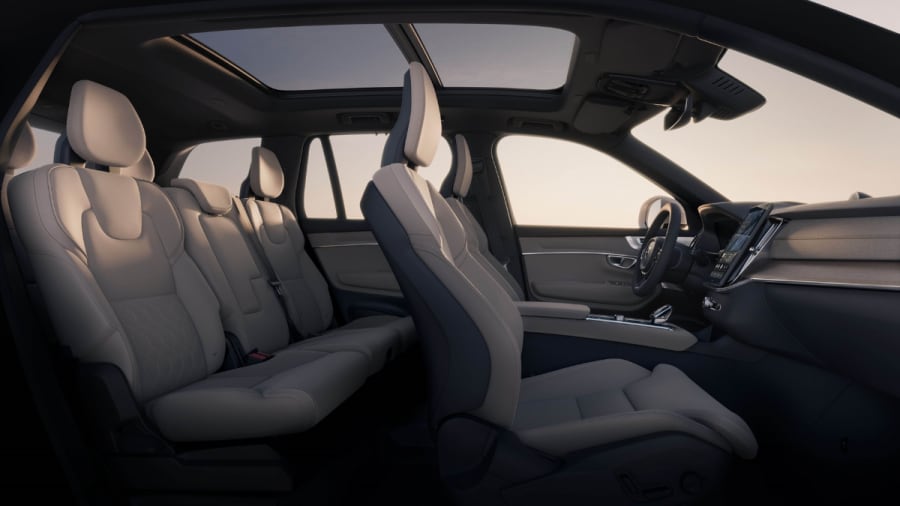
New Volvo XC90: Powertrain
The XC90's powertrain options remain unchanged at plug-in hybrid and mild hybrid gasoline, although all variants still have eight-speed automated transmissions and all-wheel drive.
A 2.0-litre turbocharged four-cylinder engine with 247PS and 360Nm of torque powers entry-level B5 vehicles, enabling them to go from 0 to 100 kph in 7.7 seconds. The B6 engine adds a supercharger on top, which boosts output to 295PS and 420Nm and can do the 0 to 100 kph sprint a second faster than the B5.
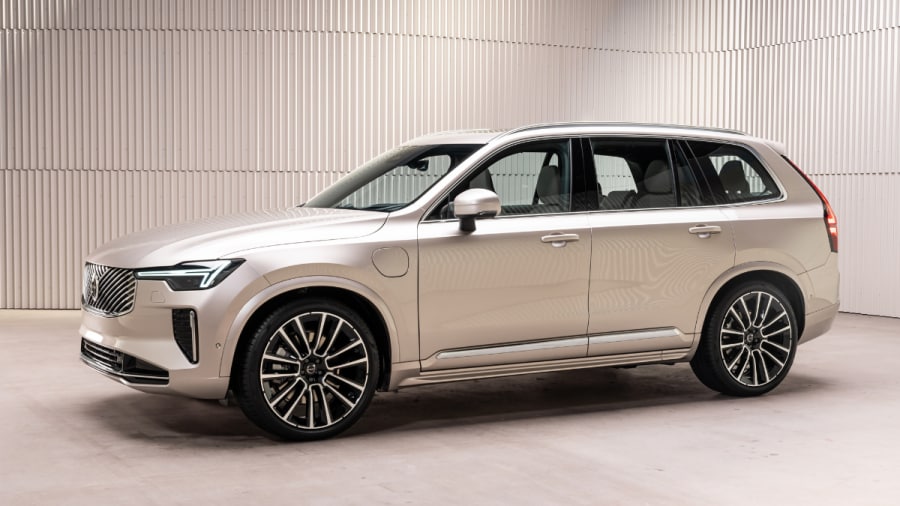
The same turbocharged and supercharged gasoline engine powers the T8 plug-in hybrid setup, which is aided by an 18.8kWh battery and an electric motor mounted on the back axle. With the combined output of 450PS and 709Nm of torque, 0-100 kph is reached in only 5.4 seconds.
Also Read:
The all-new Nissan Patrol is what we've been waiting for
2024 Customer Experience Index: Kia & Audi top chart
Starts Rs 80.9 Lakhs
1969cc
Automatic
235
420
-NA-
